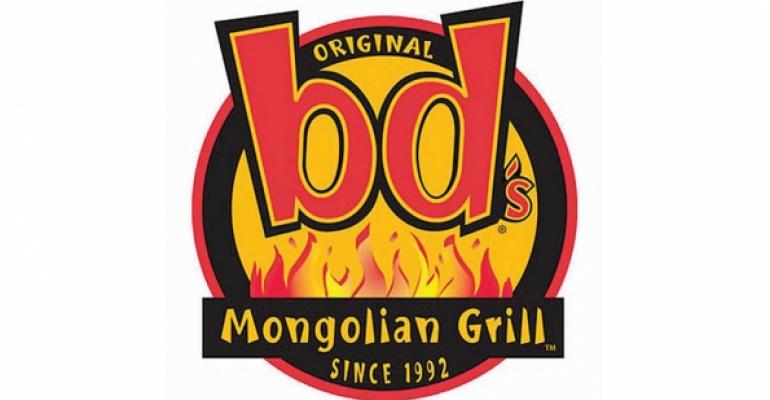The operating environment for casual-dining restaurants has become such a challenge in recent years that BD’s Mongolian Grill is considering a change to its very business model.
The Burnsville, Minn.-based Mongolian grill chain is planning to test a fast-casual version of its traditionally full-service concept, as it looks for ways to expand despite higher labor costs and real estate costs.
“Our future growth is in the fast-casual realm,” Joe Phraner, president and chief operating officer of the chain, said during an interview at the NRA Show this week. The company is looking for sites now where a franchisee can open the chain’s first fast-casual format model, hopefully by the end of the year or early next year.
BD’s has been shrinking in recent years. In 2011, the chain had 34 locations, a mix of company owned locations and franchisees. Now, the chain has 25 locations, including a mix of franchise and company locations. Among the units that have been shuttered: its location in Burnsville, near the company’s headquarters.
The company has generated some sales growth more recently, however, including same-store sales growth last year and traffic growth so far in 2016 — despite broader sales and traffic concerns in the restaurant industry.
Phraner said the company has worked on increasing its use of digital and social media to advertise its message and is also doing more target marketing. It also reduced discounting.
Lower food costs this year helped, too. “Commodities have given us relief this year,” Phraner said. “It helped us hold prices.”
The company is also working on its newest acquisition of the eight-unit Chicago-area Mongolian grill chain Flat Top Grill — which BD’s bought earlier this year. BD’s doesn’t plan to convert the Flat Top units to its brand, noting that Flat Top has a slightly different service model and is a known commodity in the Chicago area.
But Phraner said that Flat Top “fits well” with BD’s. “We know stir-fry,” he said. “We thought we could bring a lot of value in terms of purchasing, and we’ve seen that.”
Still, Phraner acknowledges and sales and cost challenges make it increasingly unlikely that BD’s — or Flat Top — will be able to expand with its traditional full-service model. BD’s occupies locations that are 5,500 to 6,500 square feet, either standalone units or in lifestyle centers.
A number of casual-dining restaurants in recent years have found it difficult to justify the cost and size of such boxes in an era of declining sales and traffic. The boxes are more expensive to open, and more expensive to operate.
“We face some challenges, just like everybody in casual dining,” Phraner said. “After food and labor, real estate is our biggest cost.”
And it’s not just a cost issue. It’s simply difficult to find the correct sites that could drive enough traffic at the right cost.
“There’s always room for a traditional BD’s,” Phraner said. “But it has to be the right location to drive the right volume. If we’re going to grow, realistically, there are not enough of those sites out there.”
Phraner is also not naive that food costs will continue to be moderate for very long. “There’s more of a chance that costs are going to come back,” he said. And now labor costs are going up, which adds to the challenge of the casual-dining model.
“Regardless of what the government does,” he said, “if you’re near a Walmart and a Target and they’re paying $10 an hour, then you’re not paying $7.25.”
So the company believes that a fast-casual format would be more efficient, in terms of labor, food costs and real estate. It could be the most likely expansion format for both BD’s and Flat Top.
To be sure, shifting the model to fast casual is risky, but for a Mongolian grill concept like BD’s, and Flat Top, it might not be so difficult. Phraner said the change wouldn’t be that significant. Customers would simply come up to the counter, pick what they want in their stir-fry, and an employee would fill the bowl for them.
That would enable the company to better control what goes into the dish to better control food costs and waste.
And instead of servers bringing customers drinks, the customers would get their own drink while they wait for their order, which would be brought to them.
As it is, it only takes 3.5 minutes to cook the stir-fry, plenty fast for a fast-casual concept.
The key element for BD’s would be to replicate the Mongolian grill experience in a fast-casual format.
“The server is integral to the system now,” Phraner said. “But if we can get the same effect of the BD’s experience without having to have a server,” that would bode well for the chain’s expansion plans.
Contact Jonathan Maze at [email protected]
Follow him on Twitter at @jonathanmaze




